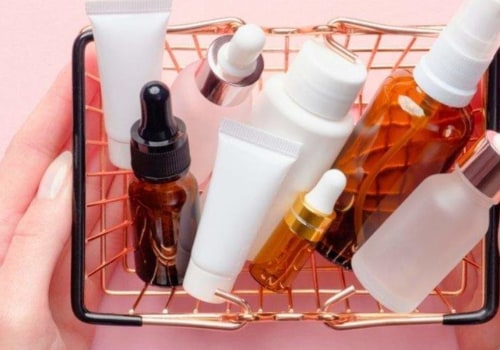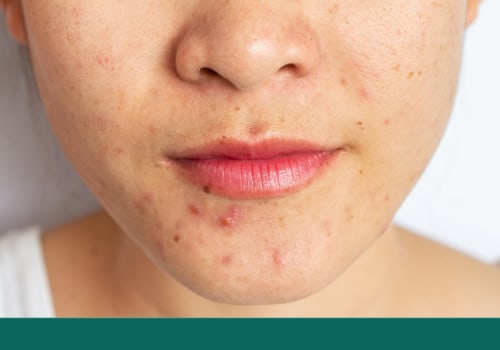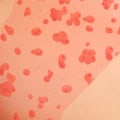Moisturizing cream is one of the most important parts of skin care, as it prevents premature aging and can help with acne. Either way, you'll be happy to know that experts tell us that a true and honest skin care regimen only needs a few important elements. And, in fact, most of us would probably be better off sticking to the simpler ending of things. The basic steps of a skincare routine are a gentle cleanser, moisturizer, and sunscreen, Emily Newsom, M, D.
Seriously, that's all you have to do. In fact, there are very few situations where people need to use a lot of products, Temitayo Ogunleye, M, D. Although there is no inherent problem with using a ton of products if you enjoy them and they are not irritating, she says, “First you have to try these very simple things and then we'll see. You'll need a cleanser to remove dirt, makeup, excess oil, dead skin cells and environmental impurities that end up on your face naturally throughout the day.
The moisturizer will help the skin's protective barrier work properly and make the skin feel soft and smooth. And possibly the most important element, sunscreen helps prevent skin cancer and aesthetic sun damage. In the morning, wash with a cleanser and then apply moisturizer and sunscreen (or combine both with a moisturizer that has a broad-spectrum SPF 30 or higher). In the evening, wash with the cleanser again and apply moisturizing cream.
Yes, you can use your SPF moisturizer at night if you want, Dr. You may find that you prefer something thicker at night, but there is no rule against using the one with SPF before sleeping, he says. From there, it is important to pay attention to how the skin reacts immediately after using the product and in the following days. Do you notice tightness, greasiness, redness or breakouts? If you are on the oily side, you may need to hydrate less often or use a lighter formula, for example.
If it's on the dry side, you may need to use a heavier moisturizer. If your skin is very dry or sensitive, you may only need to wash your face with a cleanser once a day at night while rinsing with water or micellar water in the morning. But if your skin is especially oily or you wear a lot of heavy makeup, you may need to clean more often or even double cleanse at the end of the day. If your skin is sensitive, you may notice some irritation (redness, itching, peeling), which is a sign that you should back off and call a dermatologist.
You'll probably need to be careful in the future to avoid products with certain ingredients, such as fragrances, that can be irritating. However, everyone still needs to apply sunscreen every day. Here's how to find one you don't mind using. You might be surprised how, after a few weeks of following these basic steps, your other skin problems calm down.
But if they don't, your next steps will depend on your skin's specific needs, said Dr. If you have acne, you can change a cleanser for salicylic acid, a mild chemical peel, or the occasional spot treatment with benzoyl peroxide. For wrinkles, fine lines, or sun damage, you may want to add an OTC retinoid to begin with (and maybe a prescription version later). Are you interested in managing hyperpigmentation? Brightening agents such as hydroquinone or vitamin C may work.
But be sure to add only one product at a time, Dr. Newsom says, and give it at least two weeks before adding anything else. If you add several things at once and you have a bad reaction to something, it will be impossible to know which product was responsible without patch testing, said Dr. Or if you see positive results, you won't know which product was responsible for the change.
It is also important to avoid adding too many products that do the same. If you already have a retinoid or an exfoliating acid in your line, you may find that adding another one doesn't help and, in fact, is more irritating. In addition to using too many products, Dr. Ogunleye says that one of the biggest mistakes rookies make is giving up too easily.
But as SELF explained earlier, both over-the-counter and prescription treatments take weeks or months to produce noticeable changes. Ogunleye argues that it is important to adjust your expectations and be prepared to offer new products for two to three months before you get discouraged and give up on them. If you're trying to find gentle day-to-day products and can't seem to find one that works with your skin, it's time to talk to a dermatologist, Dr. Alternatively, if you're trying to address a specific skin problem (such as acne or hyperpigmentation) and don't see any improvement, a dermatologist can help you solve the problem and possibly prescribe a stronger medication that might be more effective.
And of course, if you find that your skin reacts badly to products and you're not sure why, definitely talk to a dermatologist. They can help you determine what might be causing that irritation and give you guidelines on how to avoid it in the future. SELF does not provide medical advice, diagnosis or treatment. Any information published on this website or by this brand is not intended as a substitute for medical advice, and you should not take any action before consulting with a healthcare professional.
Washing your face is the most basic and essential step of any routine, says New York City dermatologist Dr. Wash twice a day, morning and night, to prevent clogging of pores, dullness and acne. Taking good care of your skin is important for more than just your appearance. As the largest organ you have, your skin is essential to your overall health.
If you take care of it, it can help you take care of yourself. That's why it's so important to have a well-thought-out skincare routine. It's worth the time and energy to take care of your skin on a daily basis. However, when it comes to putting your best face forward, it says that it is four simple goals and four types of products to achieve them.
Choosing a cleanser that is specifically formulated for the face (rather than the body) is the first essential step in a basic skincare routine. But how do you choose the best one? It's a common myth that people with oily skin don't need moisturizer. In fact, using a non-comedogenic moisturizer can help reduce the skin's natural oil production. If you skip this step, your skin will continue to produce excess oil to maintain the moisture barrier.
The third and final step in a basic and effective skincare routine is sunscreen. Skin cancer is the most commonly diagnosed cancer in the United States, with more new cases each year than all other cancers combined. The more your skin is exposed to the sun, the higher the risk of developing skin cancer, but it's not just the long days at the beach that put you at risk. Every time you walk your dog, travel between your car and the grocery store, or sit in front of a window, your lifetime UV exposure increases, increasing your risk of cancer.
Using sunscreen on a daily basis, whether you're going to be out all day or not, is a great way to reduce your chances of developing skin cancer. In addition to preventing skin cancer, using sunscreen can also prevent premature aging. UVA rays from the sun do not cause sunburn, but they do penetrate deep into the skin and cause wrinkles and fine lines. If you want to keep your skin soft and youthful for as long as possible, then a broad-spectrum sunscreen (UVA and UVB protection) with SPF 30 or higher may be the best anti-aging product you can use.
Retinoids delay the breakdown of collagen to improve the thickness and elasticity of the. They do this by accelerating cell renewal, which stimulates the skin to produce new collagen-filled cells more quickly. Retinoids make the skin more sensitive to UV radiation, so it's best to use them at night and stick with sunscreen during the day. Taking care of your skin is as simple as using a cleanser, moisturizer, and sunscreen.
Although there are a million products to choose from, keep it simple and your skin will thank you. If you want personalized recommendations for your skincare routine or want to take it to the next level with an antioxidant serum or prescription retinoid, contact us. We'd love to help you create the perfect basic skincare routine. .
.






